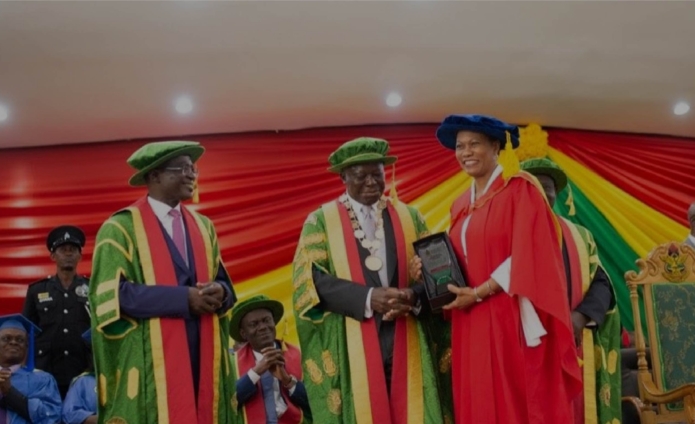Prof. Mrs. Atinuke Olusola Adebanji, is Ghana's first female professor of statistics and the founding Head of the Department of Statistics and Actuarial Science, KNUST.
She loves to keep a quintessential short jerry curls but her tall frame, at times, wheeled on sneakers, spins an aura of simplicity dotted with mental and physical agility.
Indeed, her mind has had little respite since childhood. Prof. Adebanji was always fascinated with her environment as a young child growing up in GRA, Ilorin, Kwara State, Nigeria.
“When I was a child, I remember my mother sometimes exclaiming that I was too inquisitive. They always complained about my inquisitiveness. I always wanted to ask questions,” she said.
For instance, she once questioned her grandmother why she seemed to be growing shorter. "Old age makes people shorter" was the reply she got. This disturbed her even more because she worried about her grandmother becoming tiny like the people of Lilliput in Gulliver’s travels. Though her banker mother perceived those inquiries as bothersome, her grandmother was more patient.
“The difference in our heights was getting closer. So I, you know, as a child, I didn't realize I was getting taller. So I asked my grandmom, why are you getting shorter? Because to me, I could see that she seemed to be getting shorter. And then she simply told me that when people get older, they get shorter. She (grandmother) was more patient with me”.
“But my mother, because she was working in the bank, and then she had more demand on her time, was quite impatient with my incessant questions.” she recounted.
In 1986, she was serenaded to the world of statistics at the University of Ilorin, Nigeria. She was enthralled with the exposé about statistics given by the Head of the Department during the orientation week.
“When I looked at statistics, from what they were saying, it was more like everywhere you go, you could do statistics," she said.
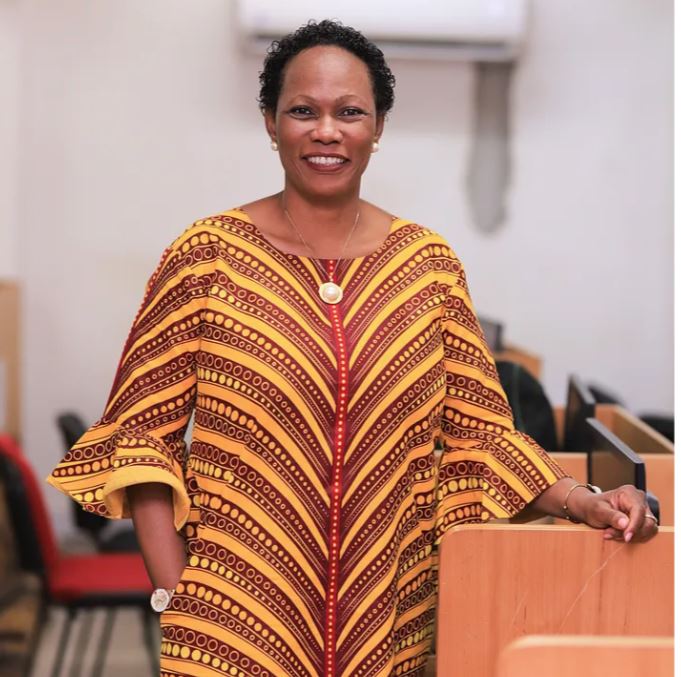
After graduation, she didn’t go straight into academia, she worked first as a statistician at the External Trade Unit of the Federal Office of Statistics.
She then proceeded to UAC, Nigeria PLC, where she worked at two divisions before taking time out to raise her young family.
After about a decade, she decided to pursue her master’s degree.
“When I asked myself, 'what do you really want to do', I enjoyed teaching Sunday school classes, I always loved research, I loved being in the library, I loved finding out, and I told myself, look, if this is what you want to do, if you have just one chance again in life to get it right, what would you do? So I told myself, I want to do research and I want to be in academia,” she resolved.
After proceeding to bag her PhD in Statistics, she worked at the University of Agriculture in Abeokuta before coming to KNUST.
Prof. Adebanji was invited because KNUST wanted to introduce the statistics programme.
As the only PhD Statistics holder when she joined the Department of Mathematics, she helped with the introduction of Statistics and with more PhD holders in Statistics and Actuarial Science, the Department of Statistics and Actuarial Science was birthed from the Department of Mathematics on August 01, 2019.
Poverty seems to have the face of a woman Prof. Adebanji’s master’s thesis was on poverty. It was on the classification of Nigerian households into poverty groups and income levels. It was at this point, she made a realisation.
“During my research, I found out that poverty seemed to have the face of a woman”.
“I was very concerned about that. The results showed if it was a female-headed household, the chances of being a poor household was higher especially in rural and peri-urban locations. And the same still persists, the chances of being a poor household were much higher than if it was a male-headed household. And then I also had a bit of a personal experience having my last child when we almost lost the baby and my survival was also threatened,” she remembered.
In 2014 at KNUST, she took the opportunity to earn a Master of Public Health degree in Population and Reproductive Health. Mother and baby health was still a driving force.
“I'm interested in mother and child studies. And I'd also done a study, when I was in Kenya, on a fellowship. The study we did then looked at spatial distribution of poverty in Somalia, and it had the same pattern.
“Females were more prone, female-headed households were more prone, the level of education and attainment were lower for females in those studies.
“I spoke to Professor Harry Tagbor then, that look, this is my interest, I would love to look at something to do with the health of mothers and babies.
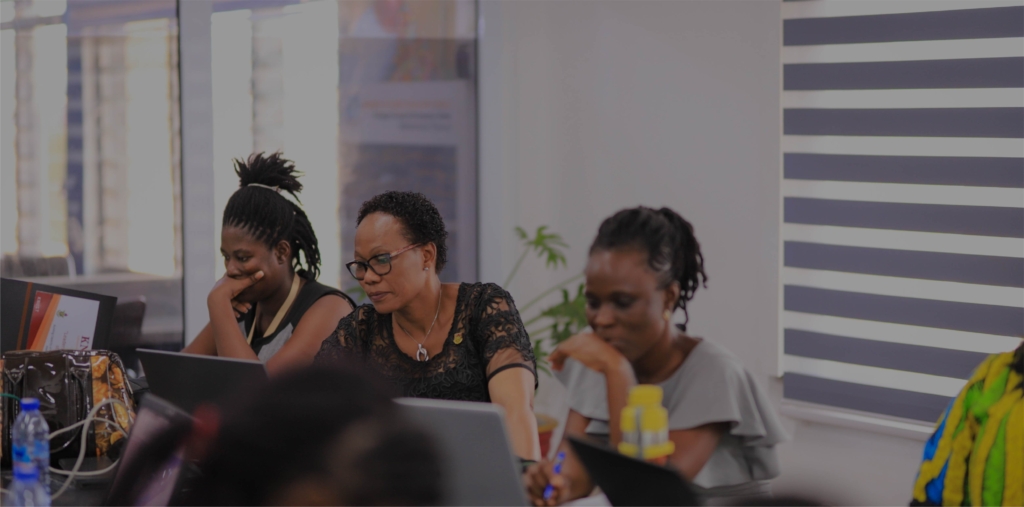
However, all wasn’t smooth, her transition to Public Health became daunting. Statistics wouldn’t let her go. She had to learn and unlearn.
“When you want to do public health, you have to think like a public health person. You have to stop thinking like a statistician. He used to tell me, he supervised my master's thesis at the School of Public Health.
When I turned in my first thesis draft, 'you are still thinking like a statistician' was his comment. He taught me a lot.
With a strong background in Mathematical statistics, Prof. Adebanji still publishes in Mathematical Statistics journals. But what gives her the most joy are her publications on health, especially women and babies.
“Those ones give me the most satisfaction,” she said with a wide smile.
“That I came to KNUST and made a difference” Prof. Adebanji who started as an assistant lecturer in statistics at the University of Agriculture, Abeokuta in 2003, joined KNUST in 2009 as a Senior Lecturer to a full professor in 2018, has been at the forefront of statistics initiatives in Ghana.
Professor Adebanji is the Founder and Coordinator of the KNUST Laboratory for Interdisciplinary Analysis (KNUST-LISA), where she collaborates with multidisciplinary domain experts to offer statistical consulting services.
Her commitment to excellence has earned her recognition as an elected member of the International Statistical Institute, and she holds a distinguished position on the International Biometric Society Governing Council.
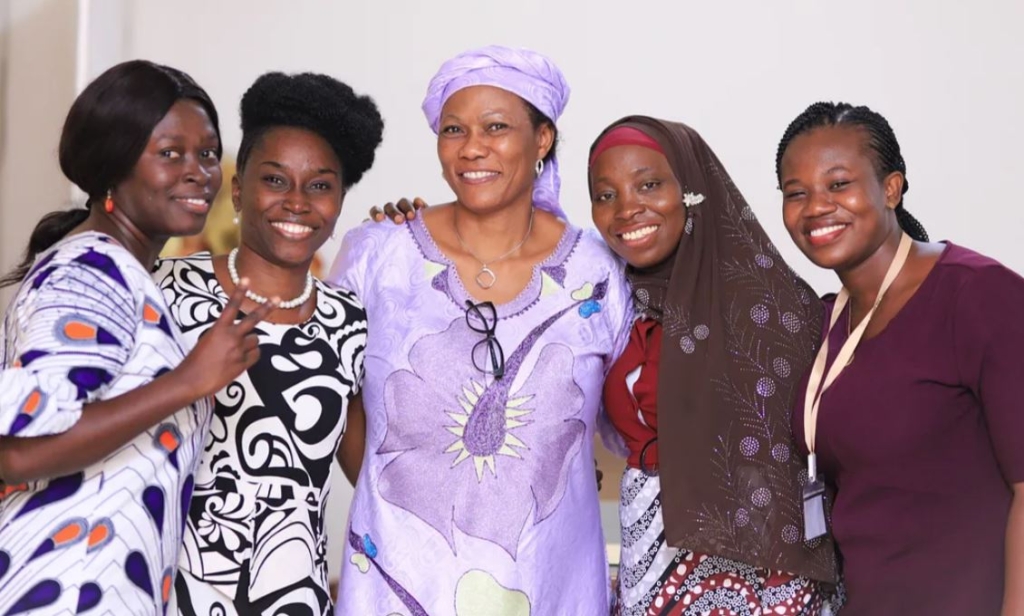
She is a founding and focal member of Women in Science, Technology, Engineering and Mathematics, Ghana (WiSTEMGh).
When I asked her what she would want to be remembered for, she simply said. “That I came to KNUST and made a difference”.
Being a utility statistician
With over 80 publications to her credit, Prof. Adebanji believes to be a successful statistician, it is crucial to be what she calls, “utility statistician”.
“From my experience as a statistician and my work in research, I have found that, you know, sometimes when you play football, you have some footballers that you call utility players. That's what a statistician should be. Because you should have the skills, you should have the competencies, you should know the theory, you should know the computational aspect of statistics,” she pointed out.
Prof. Adebanji also stressed the importance of collaboration to be a successful statistician.
“But the real relevance of a statistician is how well you're able to collaborate, how well you're able to provide support, service for other researchers. That, for me, I think is more important for us than Mathematical gymnastics, which, of course, is essential. It has a special place. But when it comes to affecting the quality of lives and your society at large, that is more important,” she said.
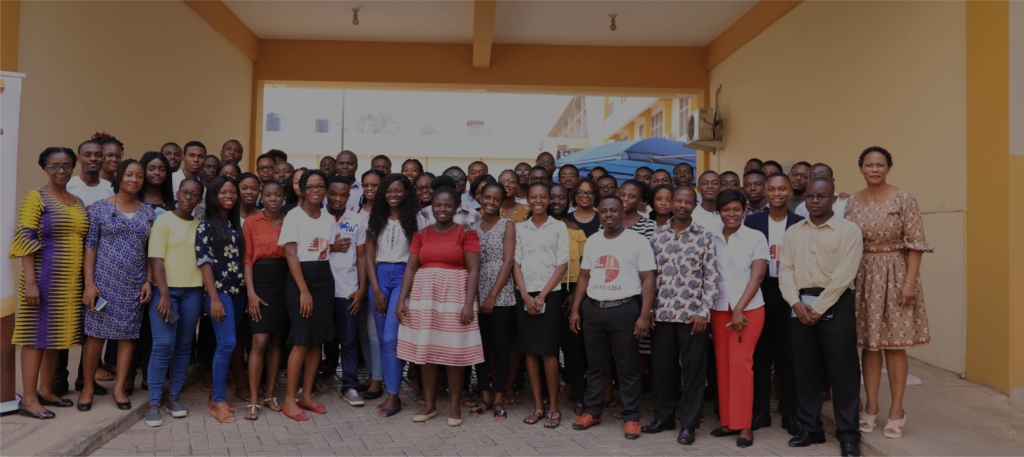
On the 22nd of February, Prof. Adebanji will be delivering her professorial lecture on the topic: Facts from Artefacts: A Journey in Statistical Inquisition”.
At the core of Prof. Adebanji’s lecture, which will be delivered in simple language, will be maternal health.
“Indeed, maternal health is everybody's health. And if we don't have healthy women in Ghana, then our nation cannot be considered as a healthy nation,” she said.
Latest Stories
-
I won’t reply to Chris Brown tour criticism – Ayra Star
1 min -
British Columbia to back off drug decriminalisation project
9 mins -
Veteran commentator Joe Lartey Sr dies at 96
10 mins -
Livestream: Newsfile discusses KPMG report on SML deal, ILO on SSNIT reserves and NDC’s running mate
44 mins -
Ghanaian activist hugs over 1,100 trees in an hour to set Guinness World Records
45 mins -
Mathew Anim Cudjoe’s Dundee United promoted to Scottish Premiership after Championship win
46 mins -
NSMQ star Jochebed Adwoa Sutherland sweeps 12 awards at UG Vice-Chancellor’s Ceremony
2 hours -
Ghana’s Education Quality ranked 125 out of 183 countries in latest Global Youth Development Index
2 hours -
Emma Stone wants people to use her real first name
2 hours -
FIFA Club World Cup 2025: Sundowns, Esperance join Al Ahly and Wydad as CAF representatives
6 hours -
CAFCL: Al Ahly set up historic final with ES Tunis
6 hours -
We didn’t sneak out 10 BVDs; they were auctioned as obsolete equipment – EC
10 hours -
King Charles to resume public duties after progress in cancer treatment
11 hours -
Arda Guler scores on first start in La Liga as Madrid beat Real Sociedad
11 hours -
Fatawu Issahaku’s Leicester City secures Premier League promotion after Leeds defeat
11 hours

